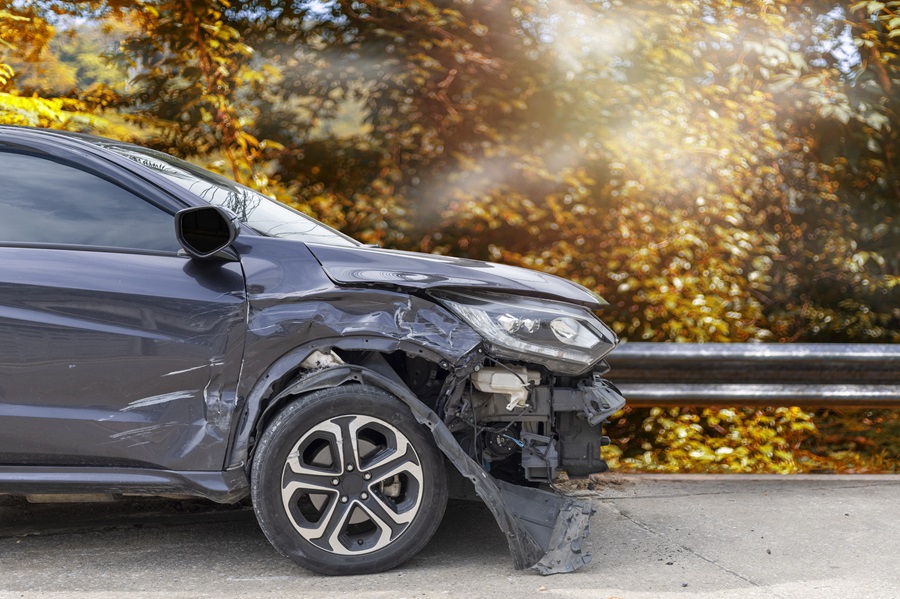What to do when you’re injured in a car accident that wasn’t your fault
Being injured in a car accident that wasn’t your fault can be overwhelming, but knowing the steps to take can alleviate some of the stress
BEING INVOLVED IN a car accident can be a distressing experience, particularly when you sustain injuries and the accident wasn’t your fault. Understanding the steps to take in the aftermath can help you protect your rights and ensure you receive the compensation you deserve.
Here’s an expanded guide tailored to UK residents on what to do when you’re injured in a car accident that wasn’t your fault.
Ensure Safety and Seek Medical Attention
Your immediate priority after a car accident should be ensuring your safety and the safety of others involved. If you are able to move, get to a safe location away from traffic to avoid further danger. Assess yourself and others for any injuries. Even if injuries seem minor, it is crucial to call emergency services by dialling 999.
Medical professionals can provide the necessary assistance on-site and transport anyone with serious injuries to the hospital. Remember, some injuries might not be immediately apparent, and a medical evaluation can identify issues that may not be visible.
Gather Evidence at the Scene
Collecting evidence at the scene of the accident is critical for supporting any future claims. Start by exchanging details with the other drivers involved, including names, addresses, and insurance information. Use your phone to take photographs of the scene from various angles, capturing vehicle damage, road conditions, traffic signs, and any visible injuries.
If there are witnesses, ask for their contact details, as their testimonies might be invaluable later. If the police attend the scene, make sure to get the incident number and a copy of their report, as this will be essential for your insurance claim and any legal proceedings.

Report the Accident
Promptly reporting the accident to your insurance company is necessary, even if you are not at fault. Most insurance policies require immediate notification of any incidents to ensure that your claim is processed smoothly. Provide your insurer with all the gathered evidence and details of the accident. Additionally, you may need to contact the at-fault driver’s insurer to initiate your compensation claim.
Reporting the accident promptly ensures that there is a clear record of the event and that your claim is handled efficiently.
Seek Legal Advice
Consulting a solicitor with experience in car accident claims can significantly improve your chances of receiving fair compensation. Many solicitors offer “no win, no fee” agreements, which means you won’t have to pay legal fees unless you win your case.
A solicitor can provide expert guidance on the compensation you are entitled to for your injuries, lost earnings, and other damages. They will handle the complex legal processes on your behalf, ensuring that all necessary documentation is filed correctly and within the required deadlines.
Document Your Injuries and Expenses
Thoroughly documenting your injuries and related expenses is essential for substantiating your claim. Keep copies of all medical records, including doctor’s notes, hospital discharge papers, and prescriptions.
Save receipts for any medical treatments, medication, and rehabilitation services. Additionally, document any financial losses incurred due to the accident, such as lost wages if you are unable to work, travel expenses for medical appointments, and any costs for home care or assistance. Detailed records will help ensure you receive compensation for all your incurred expenses.

Understand the Claims Process
The claims process involves several key steps. Your solicitor will notify the at-fault party’s insurer of your intention to claim compensation. You may be required to undergo a medical examination to assess the extent of your injuries. This assessment helps in quantifying your claim.
Your solicitor will then negotiate with the insurer to reach a fair settlement. If an agreement cannot be reached, the case may proceed to court, where a judge will determine the compensation amount. Understanding this process helps you stay informed and prepared for each stage of your claim.
Rehabilitation and Recovery
Focusing on your recovery is paramount. Follow your doctor’s recommendations closely and attend all follow-up appointments. Utilise any rehabilitation services provided to aid your recovery. These services can include physical therapy, counselling, and other forms of support designed to help you regain your health and well-being.
Prioritising your recovery not only helps you heal but also demonstrates your commitment to following medical advice, which can be important in your claim.
Consider Compensation Types
Understanding the types of compensation you may be entitled to is important for ensuring you receive a fair settlement. General damages cover pain, suffering, and loss of amenity (PSLA), compensating you for the physical and emotional impact of your injuries. Special damages cover financial losses such as medical expenses, loss of earnings, and vehicle repairs.
Knowing what you can claim helps ensure that you seek the full range of compensation you deserve.
Conclusion
Being injured in a car accident that wasn’t your fault can be overwhelming, but knowing the steps to take can alleviate some of the stress. Prioritising your safety, gathering evidence, seeking legal advice, and understanding the claims process are vital actions. With the right support and information, you can ensure your rights are protected and receive the compensation you deserve.
If you’ve been injured in an accident, don’t hesitate to seek legal counsel to guide you through this challenging time. Remember, the law is on your side, and there are resources available to help you through every step of the recovery and claims process.

